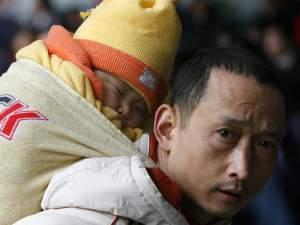WASHINGTON—A report concerning China’s Development Indicators shows large disparities among regions, the largest being the health indicator. The huge variation in health indicator is characterized by social problems such as difficulty of seeing doctors. Therefore medical system reform has become a central issue Chinese people are most concerned about.
On February 26, the China Research Evaluation Center of China’s Renmin University publicized the China Development Indicators for the first time, including health indicator, education indicator, quality of life indicator and social environment indicator of 31 provinces. The report reveals large regional disparities, especially between urban and rural areas. The social environment indicator shows the smallest regional difference and health indicator show the largest.
Beijing University of Science And Technology professor, Hu Xingdou, involved in researching regional differences in development, stated that Renmin University’s research basically reflected the real situation in China.
He said that in terms of average financial income and average deposits, the difference between the most modern provinces and cities and the most undeveloped provinces and cities, such as Shanghai and Guizhou, is as much as 12 to 16 folds.
Unbalanced Investment Creates Privileged Cities
Professor Hu said that unbalanced financial investment has lead to unbalanced distribution of resources, which has created a group of privileged cities. Take Beijing, the most privileged of cities, for example; centralized within it are not only China’s best universities, but also its best hospitals and medical treatment clinics.
Professor Hu said: “A while ago, I read in a report that the number of units of high-tech medical equipment such as Nuclear Magnetic Resonance and CTs located in Beijing is almost the same, or perhaps even greater than, the total number in all of Europe.”
Medical Health Expenditure Ranked Last in the World
According to Professor Hu, China’s medical health expenditure to GDP ratio, at slightly over 2 percent, ranks the lowest in the world. He added that the U.S. is at about ten percent, while even India has 5 percent to 6 percent. At the same time, the very limited medical health resources in China are distributed unevenly due to unfair privileges in system.
Responding to a report claiming that 80 percent of China’s state medical treatment fees are consumed by the various levels of government cadres, Professor Hu stated that the unbalanced distribution and consumption of Chinese medical health resources was in fact due to undemocratic and unscientific investment policy.
Professor Hu added, “It is caused by a bureaucratic and unsystematic financial system. Since the central leaders all live in Beijing, the main investment is in Beijing. All provincial leaders live in the provincial capital, so the investment is in provincial capital. That is to say, this kind of investment is the result of the mentality of ’the privileged officials.'”
System of Privileges Must Change
China Xinhua Net reported that a research conducted before the “two conferences” (the Chinese People’s Political Consultative Conference (CPPCC) and National People’s Congress Conference) in 2007 has shown that Chinese people hope the “two conferences” will resolve a series of problems, including medical health, environmental protection, social welfare, and food safety, among others.
The report claimed that 76 percent of people on the internet listed medical system reform as the most crucial issue, 84 percent considered the price of medicine too high, and 93 percent of people were not satisfied with the result of the current medical reform.
Professor Hu said that currently the ratio of China’s medical and health care expenditure over GDP ranks last and the fairness of China’s medical and health care system ranks within the last four in the world. In order to change this situation, an even distribution of investment is required, together with a democratic and open financial system. In addition, China’s privilege system must undergo a fundamental change.

